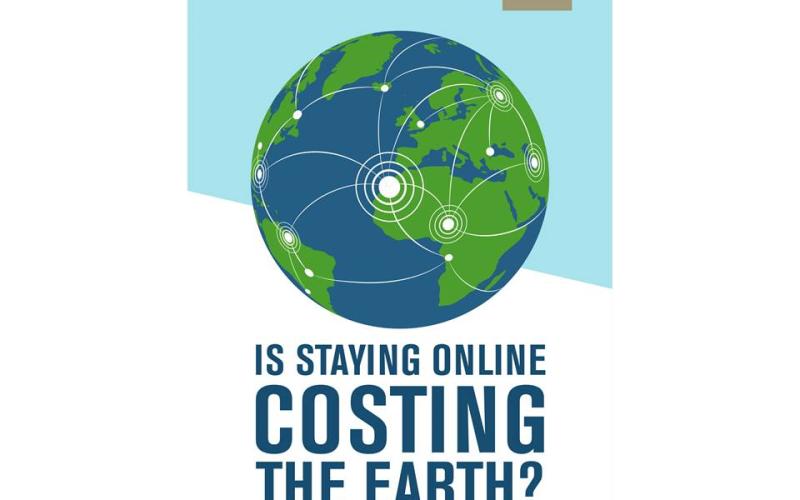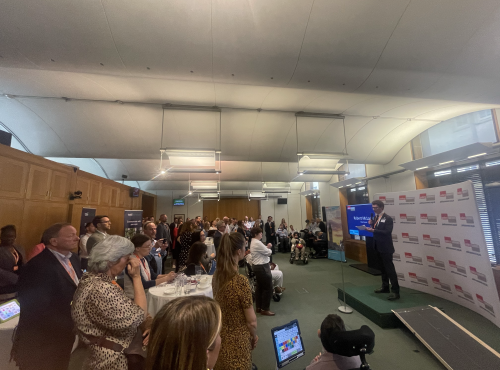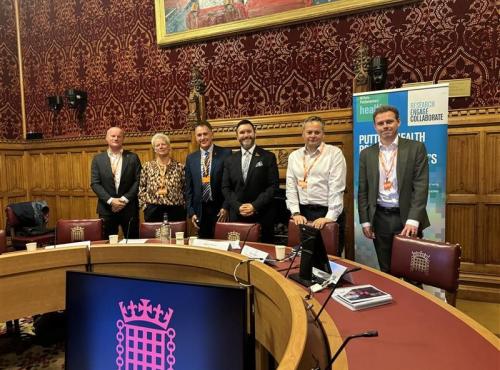Is Staying Online Costing the Earth?
New inquiry finds that digital growth needs policy frameworks to control threat to energy efficiency
- Policy Connect says Government can support the UK’s leading digital economy to grow further through energy-saving technology innovation
- Government and industry must ensure our digital backbone is both efficient and effective into the future – if we get it wrong the ever-increasing demand for all things ‘smart’ could cause a surge in energy use
- ICT solutions have the potential to enable a reduction in global greenhouse gas emissions of up to 15.3% by 2030
- The public sector, with its influential spending power, must lead by example in taking forward an ‘energy efficiency by design’ approach to delivering digital services
The cross-party inquiry was co-chaired by Antoinette Sandbach, Conservative MP for Eddisbury, and Daniel Zeichner, Labour MP for Cambridge.
As we move into the era of the Internet of Things it is time to take stock of the energy and carbon cost of being increasingly on-line. High energy bills, new efficient ICT technologies, and regulations have kept the proportion of electricity used by ICT products and services in check. However, there is a risk that with a growing dependence on connected devices and digital technologies, energy efficiency gains will stall and our carbon footprint from using the net may soar.
Of the inquiry, Co-Chair Antoinette Sandbach MP, said: “I’m delighted to be working with Policy Connect on this project. New digital technologies can play an important role in combatting climate change, as well as reducing energy bills. I hope that this report will be the first step to driving greater energy efficiency in our use of digital services and encouraging economic growth through more digital products and services that reduce energy consumption and carbon emissions.”
Co-Chair Daniel Zeichner MP added: "This report on the energy consumption and carbon emissions of the internet is an important step in making policy makers aware of the energy consequences of the internet. It should be taken into account by all those working on energy efficiency and digital transformation programmes. As we move to a more digital economy, we need to ensure that these recommendations are built in to the design, implementation and delivery of services from the start and that our digital backbone is both efficient and effective in the future.”
Government has identified 18 criteria to help them create and run digital services, for example, considering privacy and security issues and user experience. Given the importance of ensuring that energy efficiency gains continue, Policy Connect reports it is essential to take an ‘energy efficiency by design’ approach to designing, building and operating digital services: this should be high on the government’s list of criteria.
techUK’s Susanne Baker, Head of Environment and Compliance, at techUK commented:
“Predictions of runaway carbon emissions from the sector have not come to pass but we must not become complacent. As we move into an increasingly digital world, we need to ensure the sector is also a sustainable one.”
“The digital transformation of our economy must be designed with energy efficiency front and centre. This means seizing the opportunities that digital technologies present to cut energy consumption and carbon emissions and placing energy efficiency as a core systems design consideration, along with privacy and security.”
techUK’s Emma Fryer, Associate Director and data centre lead, commented:
“This report takes a thoughtful and objective view of data centre energy use. Rather than automatically targeting the commercial sector, where energy stewardship is already a priority and where energy consumption is transparent and accountable, it considers the sector as a whole and identifies the areas, such as distributed IT, where much more significant energy savings could be reaped with the right information, incentives and leadership.”




